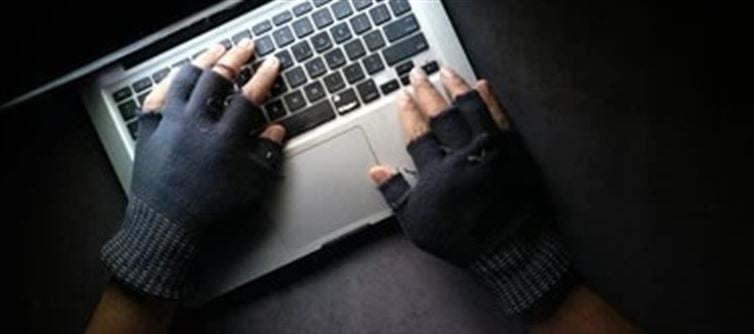
🔥 183 Million Passwords Leaked: Is Your Gmail Next in Line?
The biggest wallet PLATFORM' target='_blank' title='digital-Latest Updates, Photos, Videos are a click away, CLICK NOW'>digital heist of 2025 didn’t happen in banks — it happened inside your inbox.
💣 The Great Password Leak: 183 Million Accounts Exposed
If you’ve ever typed your Gmail password into a public Wi-Fi, a shady app, or a random login screen, this might be your worst nightmare coming true.
A massive data breach — containing over 183 million email accounts — has surfaced online, exposing credentials from Gmail and other major services.
The stolen dataset reportedly spans 3.5 terabytes, a wallet PLATFORM' target='_blank' title='digital-Latest Updates, Photos, Videos are a click away, CLICK NOW'>digital goldmine for hackers. According to cybersecurity expert Troy Hunt, founder of Have I Been Pwned, this isn’t just a recycled leak — it contains over 16.4 million fresh, never-before-breached email addresses.
This isn’t just a glitch in the matrix. It’s a global password apocalypse — and your wallet PLATFORM' target='_blank' title='digital-Latest Updates, Photos, Videos are a click away, CLICK NOW'>digital life might already be on the list.
🧠 How Did This Happen? The “Infostealer” Epidemic
No, Gmail wasn’t hacked.
The real enemy lives in your own device.
According to Hunt, the stolen credentials come from “Stealer logs” — wallet PLATFORM' target='_blank' title='digital-Latest Updates, Photos, Videos are a click away, CLICK NOW'>digital trapdoors planted by malicious software known as infostealers.
Here’s how it works:
You download a free PDF tool, a “cracked” app, or a fake Chrome extension.
It quietly copies everything you type — your website logins, your email address, your passwords — and sends it to a hacker’s database.
Every time you log in, your credentials are logged.
Every “Save Password” click could be saving it for someone else, too.
This isn’t a hack of Gmail.
It’s a hack of you.
🧨 The Danger Zone: Why This Leak Is Different
Most breaches fade into the background — outdated databases, reused leaks.
But this one is different.
The dataset includes millions of users never previously been compromised.
That means fresh victims, fresh access, and fresh chaos.
The data isn’t being traded in secret dark web forums anymore — it’s openly surfacing on file-sharing platforms.
Which means cybercriminals, scammers, and even amateur hackers can now dig through your wallet PLATFORM' target='_blank' title='digital-Latest Updates, Photos, Videos are a click away, CLICK NOW'>digital skeletons.
🚨 How to Check If You’re Compromised
Before you panic, check.
Go to HaveIBeenPwned.com — the world’s most trusted breach notification site.
Enter your email.
If it flashes red, your credentials have leaked.
If it’s green, you’re safe… for now.
Hunt’s site not only flags breaches but also gives a timeline of when and where your data appeared.
This isn’t about paranoia — it’s about survival.
🔐 What You Must Do Right Now
If your email shows up in the breach — or even if it doesn’t — here’s your digital first aid kit:
Change your password immediately.
Make it strong, random, and never reused.
(“P@ssword123” isn’t a password. It’s a suicide note.)
Enable Two-Factor Authentication (2FA).
It’s your last line of defense — even if your password leaks, the hacker can’t get in.
Adopt passkeys.
Google now offers password-free logins — cryptographically secure, virtually unhackable.
Never reuse passwords.
One leak = all your accounts compromised. Use a password manager to generate unique ones.
Check your devices for malware.
If you installed suspicious apps, browser extensions, or pirated tools — delete them and run a deep antivirus scan.
🧩 What google Said
After the news broke, panic spread like wildfire.
But google quickly clarified:
“Reports of a Gmail security ‘breach’ impacting millions of users are entirely inaccurate and incorrect,”
— Google Spokesperson
The tech giant emphasized this was not a Gmail system hack, but part of a broader credential theft epidemic.
Translation: Gmail is safe. Your habits are not.
google urged users to:
Turn on 2-step verification
Adopt passkeys
Reset exposed passwords immediately
Because cybersecurity isn’t just Google’s responsibility anymore.
It’s yours.
💥 The Silent war for Your wallet PLATFORM' target='_blank' title='digital-Latest Updates, Photos, Videos are a click away, CLICK NOW'>digital Identity
Every leak chips away at something bigger than privacy — trust.
The average person today juggles 100+ accounts, from Netflix to bank apps.
All of them connected by one common thread: your email.
Lose that — and you lose your wallet PLATFORM' target='_blank' title='digital-Latest Updates, Photos, Videos are a click away, CLICK NOW'>digital life.
Your Gmail isn’t just an inbox.
It’s your passport, your identity, your recovery key, your access to money, messages, and memories.
And in this silent war, the battlefield is your browser.
🔒 Final Word: Privacy Isn’t Dead — But It’s Bleeding
This breach isn’t a wake-up call.
It’s a warning shot.
The next big hack won’t be a corporate breach or a stolen database — it’ll be a chain reaction of ordinary people who ignored small alerts.
So before you scroll to your next email, remember:
Every password you reuse, every “maybe later” on two-factor authentication —It
is one click closer to disaster.
Change it. Secure it. Lock it down.
Because in 2025, your data isn’t private. It’s prey.




 click and follow Indiaherald WhatsApp channel
click and follow Indiaherald WhatsApp channel